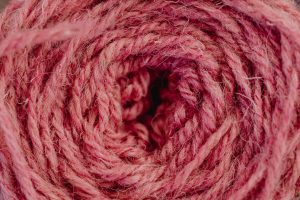Exploring the World of Sustainable and Ethical Jewelry Brands
As the world becomes more conscious of the environmental and social impact of fast fashion, more and more consumers are turning to sustainable and ethical alternatives in all aspects of their lives. This includes jewelry, a market that has been historically plagued by unethical and unsustainable practices. However, in recent years, there has been a surge in the number of jewelry brands committed to using sustainable materials and ethical production methods. In this article, we will take a closer look at these brands and explore the world of sustainable and ethical jewelry.
The Impact of Fast Fashion on the Jewelry Industry
Before we dive into the world of sustainable and ethical jewelry, it’s important to understand the negative impact that fast fashion has had on the industry. Fast fashion refers to the mass production and consumption of cheap, trendy clothing and accessories. This has led to a culture of disposability, where items are bought and discarded at an alarming rate.
The jewelry industry, like the fashion industry, has also been affected by the rise of fast fashion. The demand for cheap, trendy pieces has led jewelry brands to cut corners and prioritize profit over ethical and sustainable practices. This has resulted in exploitative and harmful practices, such as using cheap and toxic materials, underpaying workers, and contributing to environmental degradation.
Sustainable Materials in Jewelry Making
Thankfully, an increasing number of jewelry brands are taking a more sustainable approach to their production methods by using environmentally-friendly materials. These materials are either recycled or sourced in a way that minimizes their impact on the environment.
Recycled Metals
One of the most commonly used sustainable materials in jewelry making is recycled metals, such as gold, silver, and platinum. These metals are extracted from old or unwanted jewelry and then re-purposed into new pieces, reducing the need for new mining. Recycling metals also decreases the amount of waste and pollution caused by mining, making it a more sustainable option.
Lab-Grown Diamonds
Diamond mining has a significant impact on the environment, with pollution, deforestation, and displacement of indigenous communities being just some of the consequences. To combat this, some jewelry brands have turned to lab-grown diamonds as an ethical alternative. These diamonds are grown in a laboratory, using sustainable and eco-friendly processes, and are chemically identical to mined diamonds.
Ethical Production Methods
In addition to sustainable materials, ethical production methods are also crucial for a jewelry brand to be considered truly sustainable. This means ensuring fair wages, safe working conditions, and protection of workers’ rights. It also involves using responsible sourcing practices to ensure that materials are not coming from conflict zones or exploited communities.
Transparent Supply Chain
Many sustainable jewelry brands prioritize transparency and are open about their supply chain and production processes. This allows consumers to make informed decisions about the brands they support and ensures that workers are being treated ethically and fairly.
Supporting Artisanal Communities
Some ethical jewelry brands work directly with artisanal communities, providing them with fair wages and stable employment opportunities. This not only supports the livelihoods of these communities but also helps preserve traditional craftsmanship, which may otherwise be lost due to fast fashion.
The Rise of Sustainable and Ethical Jewelry Brands
The demand for sustainable and ethical jewelry is rapidly growing, and many brands are stepping up to meet this demand. Some well-known brands, like Pandora and Tiffany & Co., have also made commitments to becoming more sustainable. However, there is also a growing number of smaller, independent brands that are leading the way in sustainable and ethical practices.
Aurate
Aurate is a jewelry brand that is committed to using only recycled materials and ethical production methods. They also have a transparent supply chain and support artisanal communities by partnering with female artisans in developing countries and providing them with fair wages.
Melanie Casey
Melanie Casey is known for their unique and intricate designs, but they are also dedicated to sustainability and ethical practices. They use recycled gold and conflict-free stones in their pieces and have also implemented eco-friendly packaging to reduce waste.
Final Thoughts
In conclusion, the world of sustainable and ethical jewelry is constantly growing, and it’s heartening to see more and more brands prioritizing ethical and sustainable practices. As consumers, it’s important to be mindful of the impact of our purchases and opt for sustainable and ethical options whenever possible. By supporting these brands, we can make a positive impact on the environment and contribute to a more ethical and fair industry for all.










